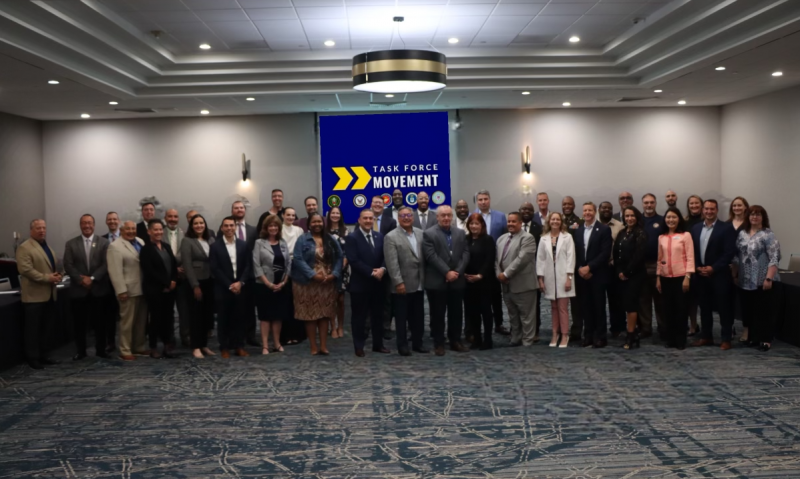
Programs to connect veterans and areas of need in the state’s economy proving that “the model works.”
On May 22, members and guests of the Task Force Movement initiative – including representatives from The American Legion – convened in a Sheraton outside Chicago to launch Task Force Movement Illinois, to connect the military with jobs in understaffed and emerging sectors of that state’s economy.
Every state’s economy is its own, and Julio Rodriguez – deputy director of the Office of Employment and Training in the Illinois Office of Commerce and Economic Opportunity – stated in his opening remarks that “Gov. (J.B.) Pritzker is delighted that veterans, servicemembers and their families have the kind of opportunities we think we can offer that some states maybe can’t.”
Representatives of two jobs programs spoke to the group. One TFM program model is the Utility Workers Military Assistance Program, which since 2011-2012 has worked with Peoples Gas in Chicago on their Gas Utility Worker Curriculum, with additional assistance from the City Colleges of Chicago. Through the collaboration students are kept abreast of the latest technological advancements, which are introduced via fluid curriculum revisions. Completion of the utility curriculum guarantees graduates an employment opportunity with Peoples Gas.
This more traditional part of the energy economy is now co-existing with newer capacities. Larry Dawson Jr. is northern regional administrator of the Climate and Equitable Jobs Act (CEJA) in the Illinois Department of Commerce and Economic Opportunity. He said Pritzker has announced his intention for the state to run on all-clean energy by 2050, and that his own office is working to develop a talent pipeline for that future.
Higher-priority applicants for the CEJA program include, among others, members of underrepresented communities and veterans. They receive both workforce and more holistic training, contractor support, economic development resources and more. As Dawson put it: “We want to make sure we don’t leave potential on the table.” CEJA is part of a statewide “ecosystem” working toward Illinois’ transition to renewable and clean energy; he added that graduates of the program can go out to work for contractors under the framework they’ve received.
Air Force Brig. Gen. (ret.) John Michel came up from Swansea, Ill. – just southeast of St. Louis – to talk to the group about the food-truck incubator/community he founded with his wife, Holly, aiming to put veterans to work in a post-COVID hospitality industry in which food trucks are growing by 10% a year. Like the rest of society, soup kitchens were affected by the pandemic’s lockdowns and shortages. And the area around Swansea suffers from food deserts. To address the problems, the couple began buying and sending out food trucks – and training aspiring entrepreneurs to own and operate them. Today, on its multi-acre campus that also includes a restaurant and a dog park, Soulcial Kitchen has instituted the first Department of Labor-certified food-truck apprenticeship program in the country, with the potential for ties to the Department of Defense’s SkillBridge program, a partner of TFM.
Also covered during the meeting were updates on TFM’s three current areas of focus, transportation, cyber and health care. Cyber Chair Dr. Jack Dever, who said he has “re-found his own camaraderie” with the initiative, stated that the “highly successful” trucking program has shown how public and private can work together, as the stories from Illinois have proven: “The model works.”
- Careers

